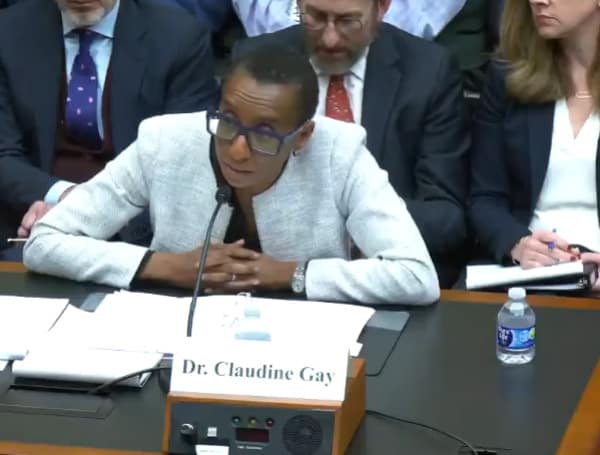House Speaker Mike Johnson suggested on Tuesday that the House of Representatives may vote to cut federal funding to universities that fail to combat antisemitism on their campuses.
Following the commencement of armed conflict between Israel and Hamas on Oct. 7, university campuses in the United States have been venues for many protesters by supporters of Israel and Gaza, with the latter being accused of antisemitic advocacy with the acquiescence of administrators.
On Tuesday, during an interview with radio show host Hugh Hewitt, Johnson indicated that the House may consider rescinding federal funding to universities that fail to combat antisemitism on their campuses.
“We’ve launched an investigation here in the House of all this federal funding that these institutes receive, and we have to demand accountability in every possible way. I think everything’s on the table right now,” Johnson said. “We have to have accountability. It is inexcusable. These institutions are receiving so many taxpayer dollars when they can’t even stand up for the basic human rights of their Jewish students?”
Read: University Of Pennsylvania Leadership Resigns After Fallout From Congressional Testimony
Johnson’s comments were prompted by testimony on Dec. 5 at a hearing of the House Education and the Workforce Committee by the presidents of Harvard University, the University of Pennsylvania (UPenn) and the Massachusetts Institute of Technology (MIT). During that hearing, the leaders suggested that “calls for the genocide of Jews” on their campuses may not be violative of university policies, which prompted widespread outrage and criticism.
“We were appalled by that outrageous testimony. It’s just staggering. We kind of know what they think. We sort of know the hypocrisy exists there, but you’ve never seen it on such a glaring display,” Johnson said.
UPenn’s president, Liz Magill, and chairman of the board of trustees, Scott Bok, later resigned in response to Magill’s testimony. At Harvard, university president Claudine Gay has faced several calls to resign as well as scrutiny over allegations of plagiarism but has retained the confidence of the university.
“As Chairman Elise Stefanik says of our Republican Conference who evoked those responses, you know, ‘one down, two to go,’” Johnson noted, indicating that the House Republican Conference supports the removal of MIT and Harvard’s presidents. “I think there needs to be real accountability Hugh, and I think that what you’re referring to with a Solomon Amendment may be one approach.”
The “Solomon Amendment” refers to a provision of federal budget law that requires universities to permit military recruiters and Reserve Office Training Corps (ROTC) personnel on campus as well as access certain student records, as a condition for receiving federal funding. It was enacted in 2006 under President George W. Bush to reverse university policies prohibiting recruiters on campus, which were mostly imposed during the Vietnam War.
Johnson did not mention any metrics that the House could establish to determine whether a university fails to target antisemitism. Harvard, which has the world’s largest private university endowment of $50.7 billion, received $676 million for fiscal year 2023 and is tax-exempt as a 501(c)(3) organization.
“I mean, the idea that they would not call outcries for the annihilation of the Jewish state and the Jewish people is just, it’s just unbelievable to us. And so everything is on the table Hugh. We’ll see.”
Harvard, UPenn and MIT did not immediately respond to a request for comment.
Android Users, Click To Download The Free Press App And Never Miss A Story. Follow Us On Facebook and Twitter. Sign up for our free newsletter.
We can’t do this without your help. Visit our GiveSendGo page and donate any dollar amount; every penny helps.

